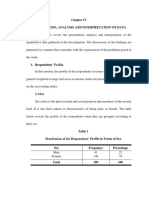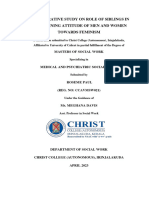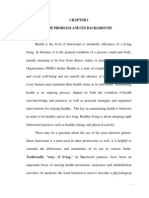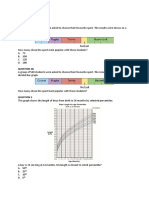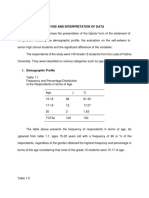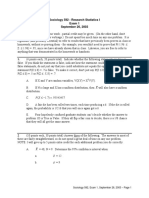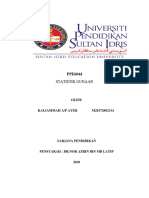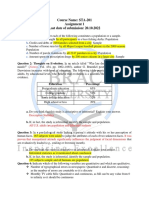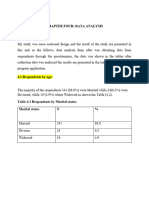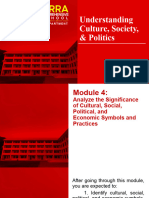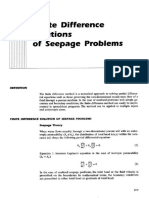0% found this document useful (0 votes)
21 views36 pagesData Analysis and Interpretation
The document presents a detailed analysis of data collected from 50 respondents regarding various aspects of their lives, particularly focusing on their experiences with gender reassignment surgery (GRS). It includes tables and inferences about demographics, educational qualifications, family types, economic status, mental health, societal acceptance, and challenges faced post-surgery. The findings indicate significant trends, such as a high percentage of respondents recommending GRS to others, experiencing depression before surgery, and facing societal rejection.
Uploaded by
tkyadu1912Copyright
© © All Rights Reserved
We take content rights seriously. If you suspect this is your content, claim it here.
Available Formats
Download as PDF, TXT or read online on Scribd
0% found this document useful (0 votes)
21 views36 pagesData Analysis and Interpretation
The document presents a detailed analysis of data collected from 50 respondents regarding various aspects of their lives, particularly focusing on their experiences with gender reassignment surgery (GRS). It includes tables and inferences about demographics, educational qualifications, family types, economic status, mental health, societal acceptance, and challenges faced post-surgery. The findings indicate significant trends, such as a high percentage of respondents recommending GRS to others, experiencing depression before surgery, and facing societal rejection.
Uploaded by
tkyadu1912Copyright
© © All Rights Reserved
We take content rights seriously. If you suspect this is your content, claim it here.
Available Formats
Download as PDF, TXT or read online on Scribd
/ 36





